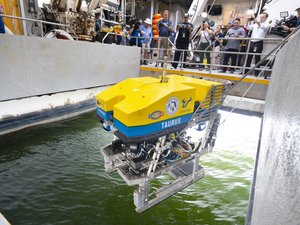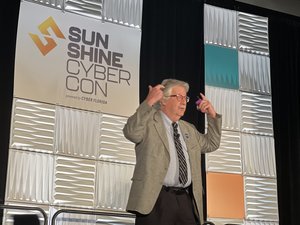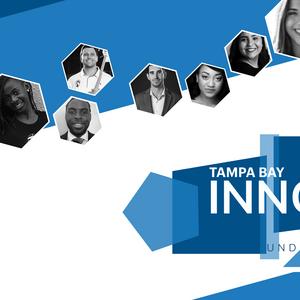
Through digital media, events, data and more, American Inno is building the largest network of local innovation, cultivating engaged startup, tech and entrepreneurial communities in 12 (and counting) markets across the country. In a new bi-weekly series, Inno’s writers will collectively select an industry or theme and highlight a local startup operating in the space.
One of the most exciting things about the new year is the chance to look ahead. And, across American Inno’s 11 markets, our writers did just that — speaking to thought leaders and movers-and-shakers from within their ecosystem. The result? 12 pieces with insider perspective on what 2019 will bring each tech and startup market.
We’ve culled some of our favorite predictions from those reports into our newest edition of national editorial. Let’s meet back here in 2020 to see if they were right.
MADISON // ATLANTA INNO
We saw a strong year for Atlanta fintech and marketing last year, so expect that to continue in 2019.
“Marketing, marketing automation and communications (social, email, etc.) will continue to be strong in Atlanta, as will security,” Sanjay Parekh of Prototype Prime said. “But I’m seeing more and more fintech startups too – buoyed by successes like Kabbage and others. I also think there is a swell of IoT companies—some that are pure play but others that meld security and IoT together—that are making great strides.”
Serial entrepreneur and co-founder of the Atlanta Tech Village David Cummings said we should also keep an eye on more robotic solutions applied to traditional industries that struggle to innovate, such as robotic lawnmowers.
Read more here.
BRENT // AUSTIN INNO
One of the biggest stories of 2018 was the addition of the Army Futures Command center in Austin. Well, last year was about setting it up and cutting the ribbons. And this year will be about seeing what they — along with the Air Force’s AFWERX and the Department of Defense’s DIUx — can really do.
Already, we’re seeing how the military, traditionally known for being independent of most of the tech startup world, is reaching out in the community through panel discussions and one-on-one chats with founders.
In 2019, expect that to expand rapidly. Capital Factory already has posted new roles to work hand-in-hand with these military tech divisions and put them in touch with all kinds of local startups. That connection will deepen in 2019, and we’ll see more local startups find financial opportunity with the government.
Read more here.
LUCY AND SRI // BOSTINNO
“2019 will be the year that we can all confidently state that Boston is an exceptional place to start and scale a company. Previously, companies went west to start and grow, as it was a way to legitimize your company but also take advantage of all the resources. Now, Boston has capital, continuing education programs, community (our sweet spot), and more to help people succeed… Also, I think we’ll see the next wave of companies build out big second offices here (like Smartsheet) and international businesses build offices and make Boston their official HQ,” said Sarah Bedrick, co-founder at Compt. Smartsheet, a maker of collaboration software based in Bellevue, Wash., recently announced they’ll be hiring 300 more folks in the Boston office. Also, Facebook could hire up to 400 employees to fill out seats at its newly-relocated Cambridge outpost.
Read more here.
KATHERINE // CHICAGO INNO
J.B Pritzker’s Role as Governor Helps Grow Chicago’s Tech Industry Since Pritzker was elected governor, many are interested to see how his role as governor affects startup and business activity in Chicago and throughout the state of Illinois. Even before he jumped into politics, Pritzker has shown his dedication to growing Chicago’s startup industry. Back in 2012, he was one of the founding partners that helped finance the creation of the city’s biggest tech incubator, 1871.
“I would think that belief in the growth of the tech sector to help grow the state of Illinois is something that would continue with [Pritzker] in this new role,” said Illinois Technology Association CEO Julia Kanouse. “We have to continue to be a technology-friendly city and region to attract those companies in terms of what our tax incentives look like and in terms of what regulation looks like.”
Generally, business-friendly policy looks like efficient and well-maintained transportation systems, access to state-funded research programs, and regulations that protect consumers and businesses from bad actors, Kanouse said.
“We don’t want to put more onerous regulation in place for the city of Chicago or the state of Illinois than is happening elsewhere in the country, or we put ourselves at a disadvantage,” she said.
Read more here.
COURTNEY // CINCY INNO
From Nancy Aichholz, president and CEO of Aviatra Accelerators: “2019 will be another strong year for the Cincinnati/Northern Kentucky tech and startup ecosystem. With big changes in leadership at Cintrifuse and a first-ever coordinated, statewide effort in Kentucky under the KY RISE program, resources will continue to be cutting-edge and accessible.
I am confident that we are in “The Decade of the Woman,” not the year of the woman. Opportunities for women and minorities must continue to grow and be more accessible if we are to prosper as a region. Because I run an accelerator for women-owned businesses that is industry-agnostic, I see a lot of growth in traditional entrepreneurship and tech-enabled businesses, not just the “tech industry” as we have come to see it.
Our biggest opportunities in this region lie in the ability to connect and collaborate and put the entrepreneur in the driver’s seat. We will still struggle a bit on the funding for small business and [on the] startup side of things, but I am optimistic that creative solutions exist if we all work together on behalf of the entrepreneurs.”
Read more here.
NICK // COLORADO INNO
Colorado’s bid for blockchain regulation in 2018 may have failed, but the state has already hit the ground running on that front this year.
In early January, Colorado state senators Stephen Fenberg and Jack Tate filed a bill called the “Colorado Digital Token Act,” proposing that digital tokens with a “primarily consumptive” purpose should be exempted from securities laws.
A similar bill narrowly failed last year, although this version has drawn increased support.
According to a story in the Colorado Sun, this bill was worked on by many who opposed the last one, including regulators from the state’s banking and securities divisions.
So, what does it mean for 2019?
Aaron Stachel of First Mile Ventures is optimistic for Colorado’s blockchain future.
“Colorado has seen a surge in innovation in the blockchain sector. Companies such as Shapeshift, Integra Ledger, BurstIQ, Dapix, CU Ledger, Radar Relay and others call Colorado home. The Colorado Blockchain Council is seeking to inform officials so that any new legislation provides appropriate safeguards and protections without stifling innovation. The Council [for the Advance of Blockchain Technology] was created by Gov. Hickenlooper, and Gov. Polis is on the record supporting the technology, so I’m optimistic we’ll see common sense rules for Colorado,” he said.
In the Sun’s story, Eric Kintner, an attorney specializing in digital currency at Snell & Wilmer in Denver and a blockchain council member, said he’s hopeful the bills will at least serve as a guide for other states.
“To be honest, we don’t know if many companies will use this or think it’s the greatest thing. … But this is an important step showing the state is open to new ideas and new technologies and, at the very least, there’s very good thought leadership to help other states who might be looking at amending their laws and guidance,” he told the Sun.
Read more here.
KIERAN // DC INNO
Government agencies are, more often than ever, facing software espionage and cybersecurity threats that are rooted in the commercial marketplace, and those battles demand new strategies and new talent churned out by the likes of George Mason University and Virginia Tech. Both of those universities are pumping money into Northern Virginia computer science education to prepare.
“The D.C. area is poised to be a leader in cybersecurity and other deep technologies like AI,” Social Tables CMO Trevor Lynn said. “We have the unique talent pool, we have incredible customers for that type of software in the area and it’s a major global focus. If D.C. can capitalize on that, our tech economy can boom.”
David Wilson said that solid customer base and industry growth will drive up acquisitions (both in volume and value) as corporations look to capitalize on the increased protection activity.
“Where there are lots of acquisitions, there are lots venture capital dollars and investments,” he said. “Where there are lots of investments, there are lots of startups.”
Read more here.
MADDY // MINNE INNO
It’s tough to predict the shift or movement of something intangible like culture. But it’s impossible to talk about Minnesota’s startup scene without discussing the often steady, level-headed, or let’s be honest – the just plain Midwestern mindset many Twin Cities companies and investors apply to business.
Local startup leaders believe that as Minnesota’s entrepreneurial ecosystem grows, founders will continue to prioritize problem solving when creating startups.
“If I were an investor on the coasts, I’d be much more concerned about the economic, political and regulatory risks on the inflated valuations in the tech sector [for coastal startups],” said John Stavig, director of the University of Minnesota’s Holmes Center of Entrepreneurship. “Back in Minnesota, I think we have a much more grounded collection of startups addressing more fundamental and enduring problems.”
Read more here.
COURTNEY // RHODE ISLAND INNO
From Jonas Clark, associate director of Brown University’s Jonathan M. Nelson Center for Entrepreneurship: “Looking ahead in 2019, I think we’re going to see even greater momentum in the startup scene in Rhode Island. Many of the critical components are really starting to come together in significant ways; there is more collaboration, more resources and above all, more people (the most important ingredient!) who are really interested in building serious ventures here.
I know from my work with entrepreneurs at Brown, we’re starting to see a lot more interest from teams who are really looking at Providence as a great place to grow after they graduate and I think we’re going to see a few of them take some big strides in the next year. Building teams, raising money, raising the profile of their work, etc. There are some incredibly talented people on the verge of doing just that, and doing it here.
I’ll also hazard one more prediction. I think we’re going to see a big uptick in tech translation and more commercializable ventures coming out of research labs. There are quite a few people here on Brown’s campus who are doing really interesting and impactful work, and I think we’ve only scratched the surface in terms of being able to get some of that out into the world. I’m really excited about that in the year ahead as well, to see what kind of progress we can make.”
Read more here.
KIERAN // RICHMOND INNO
A shortage of early-stage capital is starting to improve after Trolley Ventures was founded in September with a $4 million fund and VC firm NRV deployed some of its $33 million early-stage growth fund. Trolley is planning to close another fund this year.
Scott Ukrop said he’s excited about the “rounding out” of the capital stack in Richmond for early-stage companies.
“With the addition of CVA Angels in recent years and most recently the launch of the Trolley Fund at the seed level of investing, area startups have more formalized stages of early capital … local startups are benefitting from increased communication and funding from across the state with angel groups from 757 Angels in Hampton Roads to Charlottesville Angel Network and Cavalier Angels to a number of Northern Virginia and Baltimore-Washington area angels.”
Look for those investors to deploy more growth capital in the Richmond area in 2019. As for the rest, we’ll have to wait and see.
Read more here.
LAUREN // TAMPA BAY INNO
Alison Barlow, executive director of St. Pete Innovation District, works with entrepreneurs and tech startups and echoes the other experts’ thoughts: in 2019, companies will keep working together to find new services.
“I think we’re going to start to see some unique collaboration where two companies in different industries have a similar problem,” Barlow said. “Data analytics show that it becomes so much of the norm for so many industries and some of the tools people use, can be used to help each other. I expect to see more of that and that’s part of my job is connecting then and pointing it out.”
The momentum of the industry does not seem to be slowing and neither does the local efforts by industry leaders to foster growth.
“Everything is being digitized and we’re in the middle of being digitized,” Rich Hume, CEO of Tech Data (Nasdaq: TECD) said. “My doorbell has a camera that can give access to my home; it’s the Alexas and ‘Okay Googles’ of the world. Tech is absolutely going to grow and the ones in Tampa will absolutely have growth. Technology had unprecedented growth in 2018 and it’s a precursor to what comes in the future.”
Read more here.
KATHERINE // WISCONSIN INNO
As Wisconsin’s tech and startup industry continues to grow, Taubner said there might be an increase in the number of people switching from legacy corporations to smaller startups. She said the majority of the participants in gBETA’s last three cohorts in Milwaukee have come directly from corporations.
“That is something we’ve not seen in the previous years,” she said. “That’s really exciting for us because those entrepreneurs have industry and domain expertise.”
Cordio says oftentimes the best entrepreneurs are the ones who have left their corporate jobs.
“My hope is that more folks leverage the experience they’ve developed working at a large company and consider forming a startup to attack a problem they understand well,” he said. “But what would be good to see is more programming developed for those kinds of entrepreneurs.”
Read more here.









